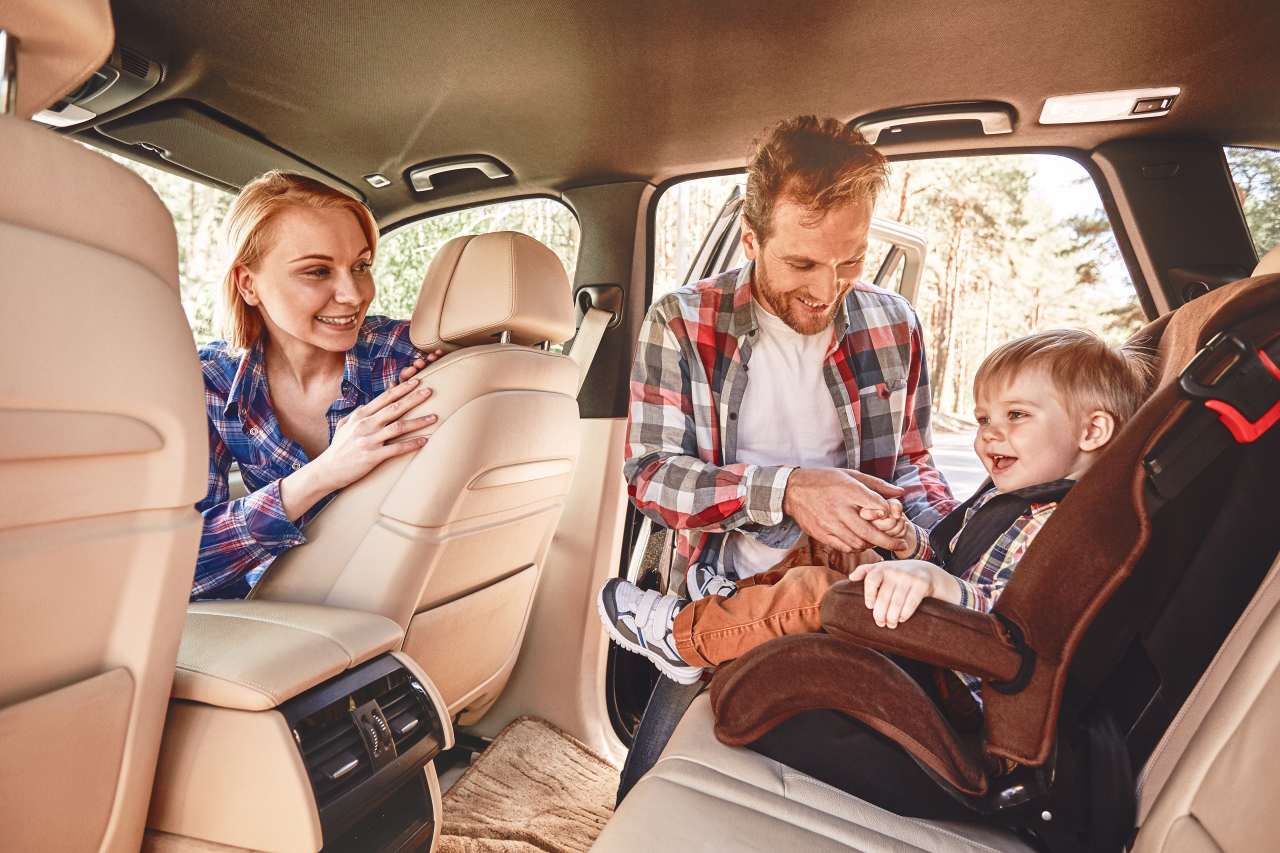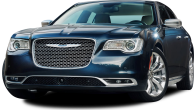Hyundai already has a great EV in the form of the SUV Ioniq 5, so what does the Ioniq 6 bring to the table?
Well, it’s styled as a sedan for those wanting something a bit sportier and the driving range outstrips the 5 by a minimum of 95km… which is not to be sniffed at.
The driving range certainly puts it at the forefront in the market, especially in a large country like ours but it still has competitors hot on its heels – like the sporty Polestar 2 and popular Tesla Model 3.
I’ve been in it for a week with my family of three to see what sets it apart. Read on to find out what we discovered.
Hyundai Ioniq 6 2023: Dynamiq 2Wd
| Engine Type | Not Applicable, 0.0L |
|---|---|
| Fuel Type | Electric |
| Fuel Efficiency | 0.0L/100km (combined) |
| Seating | 5 |
| Price From | $50,160 - $57,640 |
| Safety Rating |
|
Price and features – Does it represent good value for the price? What features does it come with?
There are three models for the Ioniq 6. Our entry, the Dynamiq, the mid-spec Techniq and the range-topping Epiq. There’s a theme here with the name but I just can’t quite put my finger on it…
The Dynamiq has the largest driving range of 614km, followed by the other two at 519km. Unlike the other two, the Dynamiq is a rear-wheel-drive and is $74,000, before on-road costs.
That makes it similarly priced to its rivals and the range puts it ahead of the usual ‘range’ leader, Tesla.
.jpg)
The features list is good with the dual 12.3-inch screens that headline the dashboard featuring most prominently. The heated front seats, auto-flush door handles, as well as wired Apple CarPlay and Android Auto add some luxury to the tech specs. But more on that below.
A colour head-up display, dual-zone climate system, 360-degree view camera, 10-way power-adjustable front seats plus a powered boot with kick-function come as standard.
To be honest, there’s not a lot of difference in the features list across all three models and you could save yourself some serious cash by choosing the already well-specified Dynamiq.
.jpg)
Design – Is there anything interesting about its design?
Hyundai has designed this to be aerodynamic, like the wing of an aeroplane but you’ll either love or hate it.
There’s no doubt it’s an EV with its bold, futuristic styling. The boomerang-like shape can look a bit ugly at certain angles but the rear invokes Porsche 911 vibes which helps it earn back some style cred (not a lot, mind).
I had a lot of neck-craners on the road and people just randomly circling it in a car park to get a better look, so it turns heads.
.jpg)
I do think the pixel-looking LED lighting is cool and there’s an insert at the back that could easily double as a solar panel (Hyundai, take note).
The Dynamiq’s style is hamstrung by the thick wheel design but you can option these out on the higher spec models.
The interior is a lot more pared back considering the exterior, and at first there’s a bit of a disconnect. However, that’s softened when you realise how eco-conscious it is.
.jpg)
Hyundai has used a lot of recycled materials on this from the interior door paintwork all the way to the carpets – which are made from recycled fishing nets!
Even the threading in the headliner is from sugarcane and that’s pretty neat to be able to see the greener production.
I quite like the size; it feels substantial being 4855mm long, 1880mm wide and 1495mm high. It will fit in the garage and tackle a tight carpark!
Practicality – How practical is its space and tech inside?
This is a practical sedan with passenger comfort taking priority over storage. You’ll be comfortable with the legroom and elbow room but taller back seat passengers may feel cramped with the headroom.
I’m 168cm (5'6") and am not far off touching the roof. If you plan on carrying taller passengers regularly, this is something to consider.
The front row gets the most amenities and tech. The 12.3-inch touchscreen multimedia system looks great and is easy to use.
.jpg)
A handy tip – change the theme from white to black to make the interior a bit more stylish, otherwise it’s like you have a couple of pieces of paper on the dash.
Front occupants enjoy two USB-C ports, a 12-volt port and a wireless charging pad but I was disappointed that this only features wired Apple CarPlay and Android Auto.
It doesn’t feel super high-tech for an electric vehicle and trailing cables irk me. The built-in satellite navigation and Bluetooth connectivity is a plus.
.jpg)
The front row also enjoys the most storage space with two cupholders, dedicated phone tray, a unique drawer glove box and a huge storage shelf underneath the centre console.
All storage bins in the doors are too shallow to really be of any use other than for the odd item, like mints.
Back seat passengers enjoy netted map pockets, two USB-C ports and directional air vents. As well as a standard three-pin house plug socket in case you need to charge up anything on the go. It is a bit lean in the back seat for both amenities and storage.
.jpg)
The low swoopy roof cuts into the door apertures, making them quite low. Which made it a bit cumbersome to manoeuvre my monster-sized booster seat into position.
It was very easy for my six-year old to get in and out, though, which was a plus for him.
The boot space is on the smaller side for this size of sedan with only 401L of capacity, and this isn’t helped by the narrower aperture.
You might end up getting strategic with gear storage on a roadie. The powered tailgate with kick-function is very handy to use.
Under the bonnet – What are the key stats for its motor?
The Dynamiq is a full EV and has a single rear-mounted electric motor with a maximum output of 168kW and 350Nm of torque.
Meaning it delivers a decent kick when you put your foot down! The motor is powered by a 77.4kWh lithium-ion battery, and going from 0-100km/h can be achieved in a zippy 7.3 seconds.
.jpg)
Efficiency – What is its driving range? What is its charging time?
Let’s get into the nitty gritty of charging.
The onboard DC charger has up to 350kW of capacity and that means that on a 50kW fast charger station, you can get from 10 per cent to full charge in 73 minutes.
But it also means it can be plugged into a 350kW ultra-fast charging station and your charge time comes down to just 18 minutes. Some EVs can’t actually accept those speeds, so this is great!
.jpg)
The charging port is a Type 2 but any charging cables cost extra, which is a shame.
You have the option of purchasing a Type 2 to Type 2 and a Type 2 to a standard ‘house plug’ AC adapter for emergency use.
But I wouldn’t be relying on the house plug for regular charging because it takes around to 34hrs and 34mins to charge up.
.jpg)
You can also purchase an at home wall mount option. One being a single phase 7.5kW system ($1180) which should get you from 10 per cent to a full charge in approximately 11hrs and 45mins, which is a tad slow for the market.
In comparison the Kia EV6, which has similar specs, gets it done in 7.5hrs. Or you can choose a three-phase option ($1425) delivering up to 22kW but you still have to factor in the install costs!
The official kWh/100km consumption is 14.3kWh and my on-test figure was 13.9kWh.
.jpg)
The regen braking doesn’t deliver a massive physical presence like the EV6 but it's very efficient.
As we’ve discussed the range is excellent at 614km. Even after six days of driving it all around Sydney, my 2.5 hour journey home, plus all the usual errands, I still had 42 per cent remaining, or 223km of range left before I popped it on charge!
And that was just because the charger happened to be free at the time I was passing. I’m very impressed with its efficiency!
Driving – What's it like to drive?
Being an EV, this is super quiet and when you put your foot down, it has a pleasant sense of power. It does lean more towards a traditional car, in terms of on-road feel. Meaning, I feel quite connected with the road and what my steering is doing. Which is responsive but firm and makes a winding road, downright fun.
The ride comfort is very good and it seems to absorb bumps well, even back seat passengers enjoy a smooth ride. The cabin remains quiet at higher speeds, too, which is great but noise can intrude. For example, when you’re sitting behind a truck.
However, all those feelings can be interrupted on the open road when you hit high winds. While not the norm, this scenario did make the car unsure of itself when it got buffeted hard.
.jpg)
I turned off the lane keeping aids during these moments because it made the driving feel almost wobbly.
Annnnnd, like its Kia cousins, the speed sign recognition tech beeps at you a lot. It’s not so much of a bother in the country but when you hit a city, man is it annoying.
The constant beeping whenever the speed changes, when you go over the speed limit, when there is a school zone …it’s like having a back seat driver all the time. Not my fav feature.
.jpg)
You can customise the regen braking in this to four levels. One being the lowest and 'iPedal' being the highest.
I don't rate the iPedal. It isn't responsive enough in an urban setting like others I’ve sampled, so I kept it at Level 3 for all of my week.
Considering the efficiency, I would say the regen is pretty good. You won’t lose any power/kays when you go down a mountain. I didn’t notice much difference between the drive modes, so it was kept on 'Normal', too.
Safety – What safety equipment is fitted? What is its safety rating?
The Ioniq 6 has a suite of safety features with the following being standard: LED daytime running lights, lane departure alert, lane keeping aid, blind-spot monitoring, rear cross-traffic alert (always good to have), 360-degree view reversing camera plus front and rear parking sensors.
It has auto emergency braking with car, pedestrian and cyclist detection which is operational from 5.0-85km/h (up to 130km/h for car detection).
I like the updated 'Forward Collision Warning' which can detect an oncoming direct collision. That is, if a car starts to cross the middle line.
.jpg)
I also like the smart parking feature – where you don’t have to be in the car to move it in or out of a car spot. Perfect for when someone has parked a bit too close for you to get in.
The Ioniq 6 was awarded a maximum five-star ANCAP safety rating in 2022. It only has seven airbags but that does include the newer front centre airbag.
There are ISOFIX child seat mounts on the outboard seats and three top tethers, but two seats will fit best.
And while there will be stacks of room for a 0-4 rearward facing child seat, that low roof may annoy you when you have to bend over to buckle in the babe.
.jpg)
Ownership – What warranty is offered? What are its service intervals? What are its running costs?
The Ioniq 6 comes with a five-year/unlimited km warranty, which is a usual term for the market but the battery has an eight-year/160,000km warranty, whichever occurs first, which is pretty good.
The first two services are capped at $560 each, which is well-priced and servicing intervals are every 24 months or 30,000km, whichever occurs first.
.jpg)
Verdict
I’ve enjoyed driving the Hyundai Ioniq 6 Dynamiq. It handles well in most situations, the driving range and eco footprint are excellent but the speed sign recognition beeping interrupted my inner peace in the city and it was harder to fit my child-seat than normal.
The small boot and 'cosy' headspace in the back seat make me think this will suit small families best and those who have graduated from the pram and nappy bag stages. I would have liked to have seen some more amenities in the back, too, so this gets a 7.5/10 from us.
Pricing Guides


























.jpg)

.jpg)



